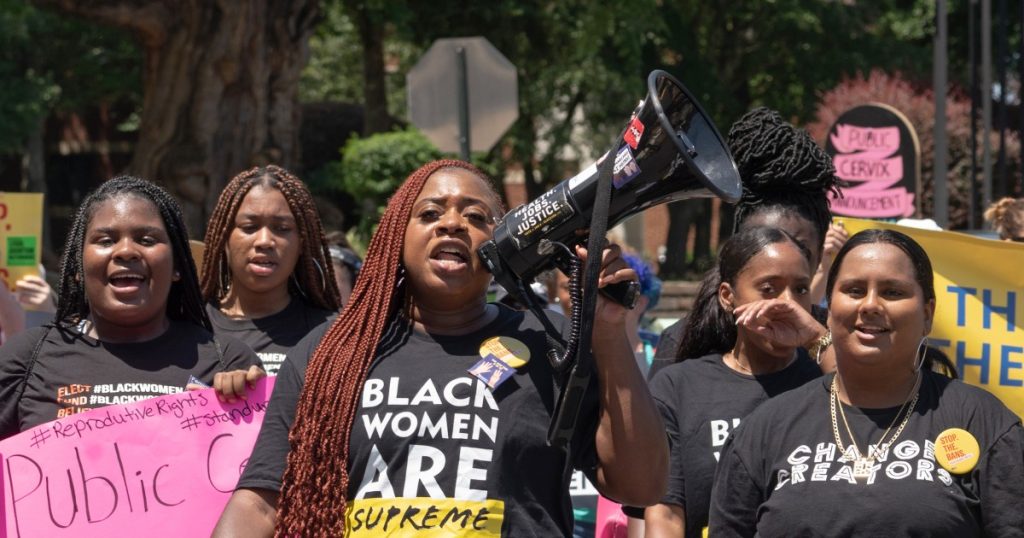A recent report from the National Partnership for Women & Families and In Our Own Voice highlights the impact of abortion restrictions on Black women of reproductive age in the United States. The report reveals that nearly 7 million Black women are affected by abortion restrictions or impending plans to implement them. This represents 57% of Black women ages 15 to 49 living in states with bans or threats to abortion access. These restrictions have increased following the overturning of the Roe v. Wade decision by the Supreme Court. Black women in these states are overwhelmingly concerned about their physical and economic security, with many facing economic insecurity and working in service jobs that lack resources such as paid sick days and flexible scheduling.
The report also sheds light on the various intersecting factors that impact Black women in states with abortion restrictions, including economic opportunity, cost of living, and racial justice. Approximately 43% of Black women of childbearing age impacted by abortion restrictions reside in states such as Texas, Florida, and Georgia, where some of the toughest laws are in place. Southern states have a large population of Black residents, making them more susceptible to restrictive abortion laws. Black women are often seen as a barometer of the overall well-being of women, and addressing the unique challenges they face can lead to positive outcomes for all women.
Nearly half of Black women ages 18 to 44 in states with abortion restrictions have been grappling with difficult decisions and questions surrounding their reproductive health. The fear of childbirth complications, arrest for miscarriage or seeking an abortion, and the decision to forego having children altogether weigh heavily on these women. As of May, 14 states have banned abortion, and 11 have limited access to the procedure. The recent ruling by Arizona’s Supreme Court in favor of a near-total abortion ban further underscores the urgency of addressing abortion restrictions.
Reproductive justice advocates have long highlighted the disproportionate impact of limited abortion access on Black people, who face barriers in seeking reproductive health care and experience poor health, education, and economic outcomes as a result. The report emphasizes the need to prioritize Black women in discussions around abortion bans and maternal mortality. By understanding the lived experiences of Black women, policymakers and advocates can work towards addressing the consequences of restrictive abortion laws and ensuring equitable access to reproductive health care for all.
Through the report, the National Partnership for Women & Families and In Our Own Voice aim to foster a more inclusive approach to addressing abortion restrictions by moving away from a “they” mentality towards a collective “we.” By elevating the voices and experiences of Black women, they hope to influence lawmakers, academics, and advocacy groups to consider the broader implications of restricting abortion access. Ultimately, recognizing and addressing the systemic challenges faced by Black women in states with abortion restrictions can lead to more effective and equitable policies that benefit all individuals.


